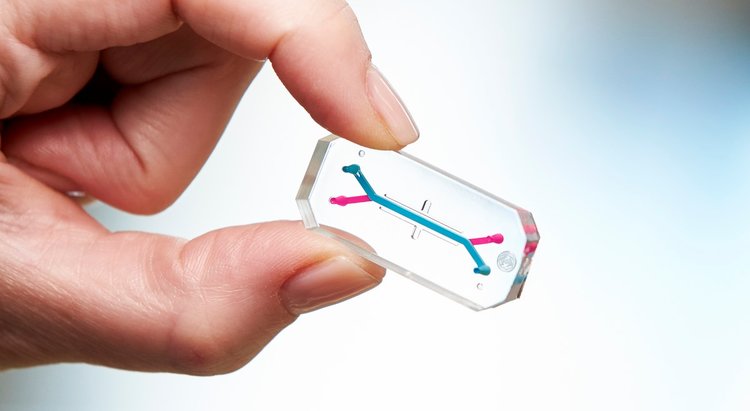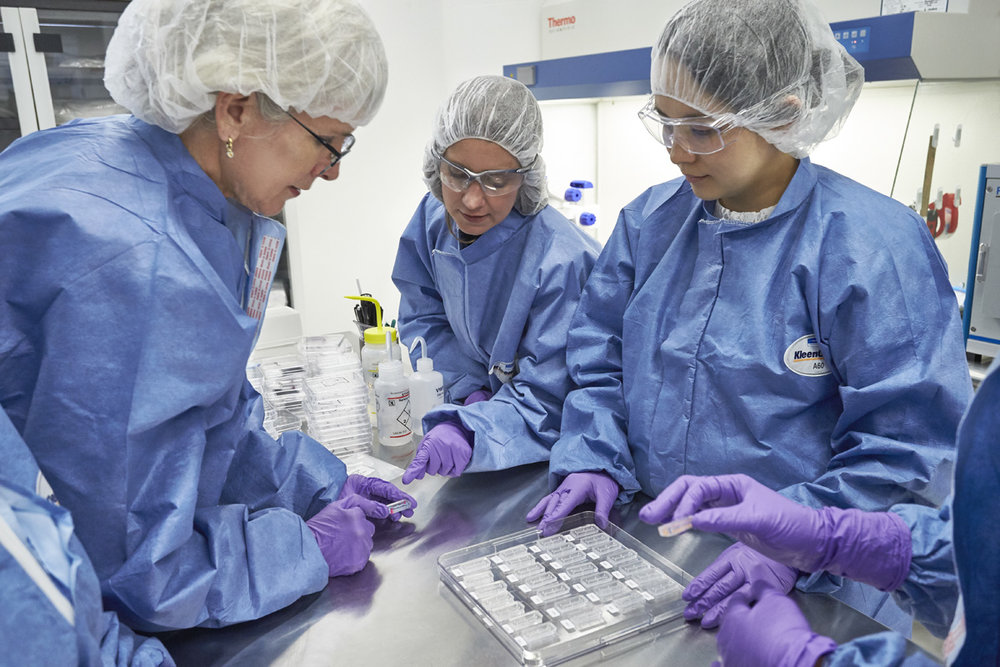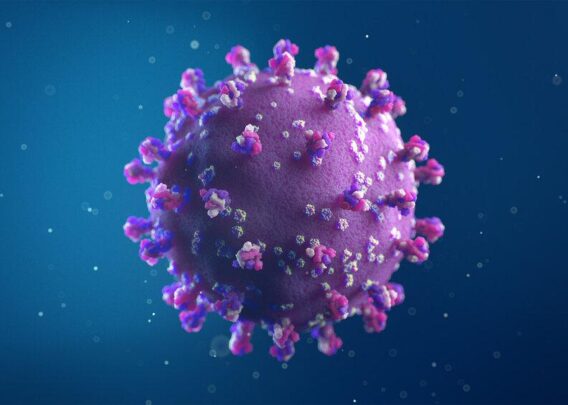Collaboration Yields First Demonstration of Thrombosis on-Chip, Improving Drug Candidate Design, Selection
CAMBRIDGE, Mass. – Emulate, Inc. today announced that it recently formed a research collaboration with Janssen Biotech, Inc., a Janssen Pharmaceutical Company of Johnson & Johnson (“Janssen”), to deploy Emulate’s Organs-on-Chips platform across certain Janssen programs to better predict the potential human response of drug candidates and improve the drug development process.
The collaboration, which was facilitated by the Johnson & Johnson Innovation Center in Boston, utilizes Emulate’s Organs-on-Chips to advance the clinical goals for three Janssen R&D programs at the stages of drug candidate design and selection. Emulate’s technology will also support Janssen’s effort to enhance drug discovery and development with its 3Rs program: reduction, refinement and replacement of animal testing.

The public disclosure of this collaboration coincides with the achievement by Emulate and Janssen scientists of the first functional demonstration of Emulate’s Thrombosis-on-Chip platform. Using the new Thrombosis-on-Chip that models human response in an engineered living microenvironment, the Emulate and Janssen research teams are evaluating the potential for drug candidates to cause thrombosis, a potential side effect of certain drug classes such as immuno-therapeutics and oncology drugs. The Thrombosis-on-Chip is an example of the application of the range of different Organs-on-Chips within Emulate’s platform for providing more predictive data on potential human response to drugs that will enable the design and selection of drug candidates that have a higher potential of success in human clinical trials.
In the collaboration’s R&D program, the Thrombosis-on-Chip emulated the conditions and various physiologic parameters involved in clot formation in the human body and provided a mechanistic understanding of the factors implicated in thrombosis. The researchers demonstrated robust functionality of the Thrombosis-on-Chip, including the following:
- Creating a microenvironment to emulate the physiological function of endothelium-platelet interactions, flow of blood, and related mechanical forces involved in platelet aggregation and clot formation;
- Engineering a microfluidic-based system and integrated analytical methods that embodied an in vitro approach to assess the dynamic functions of platelet interactions with living endothelial cells;
- Demonstrating molecular and cellular level resolution to evaluate platelet activation and aggregation and interaction of endothelial dysfunction and blood-derived factors in causing thrombosis or bleeding;
- Analyzing platelet-endothelial interactions under pathophysiological conditions relevant for thrombosis research.
The Emulate and Janssen teams, in collaboration with researchers at the Wyss Institute for Biologically Inspired Engineering at Harvard University, plan to publish comprehensive data related to the Thrombosis-on-Chip research in a peer-reviewed journal.
“For the first time, Emulate’s Organs-on-Chips have demonstrated the ability to recreate the key drivers of thrombosis within a chip in a way that mirrors what happens in the human body. We accomplished this Thrombosis-on-Chip milestone working alongside our colleagues at Janssen and Harvard, and we are proud to advance the frontier of Organs-on-Chips technology to provide insights into the mechanisms of action of thrombosis,” said Geraldine A. Hamilton, Ph.D., President and Chief Scientific Officer of Emulate. “This is one example in our collaboration with Janssen that shows how we are using Organs-on-Chips to identify safety and efficacy issues more reliably and earlier in the drug development process, delivering meaningful value by more successfully evaluating drug candidates for the benefit of patients.”
We expect that this will improve the overall effectiveness of drug development processes and ultimately, lead to increased success rates for the advancement of better and safer drug candidates.
— Geraldine Hamilton PhD, CSO of Emulate.
Under the terms of the collaboration agreement with Janssen, Emulate will provide its Organs-on-Chips technology to advance the clinical goals for three research programs: the use of the Lung-on-Chip and Thrombosis-on-Chip to evaluate pulmonary thrombosis; use of the Liver-on-Chip to better predict liver toxicity, a major cause of drug failures in the clinic; and a third undisclosed research program. Emulate will obtain rights to any discoveries related to the Organs-on-Chips platform that result from the research collaboration. Janssen has the option to extend the collaboration beyond the initial three programs, to include additional organs, disease models or drug programs. Other terms of the agreement are not disclosed.
“With Janssen as a preeminent leader in the pharmaceutical industry and Emulate’s advanced Organs-on-Chips technology, we aim to transform the R&D paradigm for drug development to better predict how humans will respond to drug candidates. We expect that this will improve the overall effectiveness of drug development processes and ultimately, lead to increased success rates for the advancement of better and safer drug candidates,” said Hamilton.

Emulate is commercializing the Organs-on-Chips technology that is based on pioneering work conducted by Donald Ingber, M.D., Ph.D. and his team at the Wyss Institute for Biologically Inspired Engineering at Harvard University. Emulate was launched from the Wyss Institute’s technology translation program in July 2014, providing Emulate with a worldwide license to a robust and broad intellectual property portfolio from Harvard University for the Organs-on-Chips technology.
Organs-on-Chips for Emulating Human Biology
Based on our Organs-on-Chips technology, which places living human cells in microengineered environments, Emulate has developed an integrated system that provides a window into the inner-workings of the human body. Our living products set a new standard for predicting human response, with greater precision and detail than today’s cell culture or animal-based testing. Emulate’s Organs-on-Chips contain tiny hollow channels lined by living human cells and tissues cultured under continuous fluid flow and mechanical forces, such as cyclic breathing and peristalsis, which recreate the microenvironment experienced by cells within the human body. Each Organ-on-Chip can contain tens of thousands of cells and is approximately the size of a USB memory stick. Organs-on-Chips are miniaturized living systems that represent the smallest functional unit of an organ that effectively recapitulate organ-level physiology and disease responses. Multiple Organs-on-Chips, such as lung, liver, intestine, kidney, skin, eye, and blood-brain-barrier, can be linked together by flowing human blood or nutrient-containing liquid to create a “Human-Body-on-Chips” that closely replicates whole body-level responses.
About Emulate
Emulate, Inc. is a private company that creates living products for understanding how diseases, medicines, chemicals, and foods affect human health. By setting a new standard for recreating true-to-life human biology, Emulate is advancing product innovation, design and safety across a range of applications in drug development, personalized health, agriculture, cosmetics and chemical-based consumer products. Emulate continues to develop a wide range of Organs-on-Chips, disease models and diagnostics through collaborations with industry partners and internal programs. By combining our Organs-on-Chips system with individuals’ stem cells, Emulate is accelerating progress toward a new era of precision medicine and personalized health. For more information, visit www.emulatebio.com.
Media Contact:
Kathryn Morris
The Yates Network
Tel: 845-635-9828
kathryn@theyatesnetwork.com



